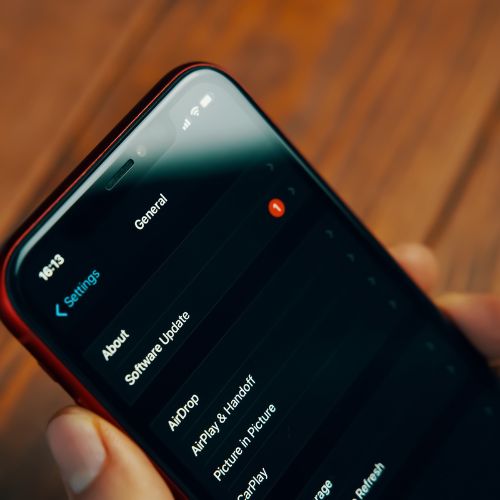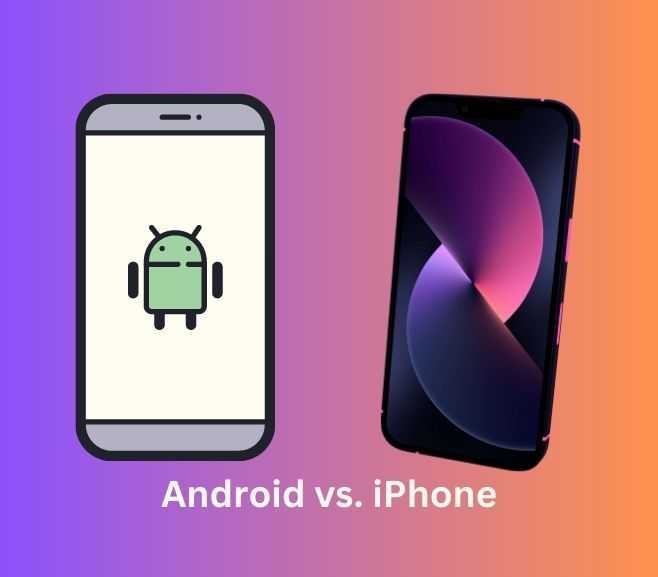In today’s world, smartphones have become an essential part of our daily lives. With numerous brands and models available, it can be overwhelming to choose the right one. The two most popular and competitive smartphone brands in the market are Android and iPhone. If you are planning to buy a new smartphone, you may wonder which one is right for you. In this article, we will compare the features and benefits of Android and iPhone to help you make an informed decision.
Android and iPhone are two popular operating systems used in smartphones. While Android is an open-source operating system, iPhone uses iOS, a closed-source operating system. Both operating systems have their strengths and weaknesses, making it difficult to determine which one is better. Let’s compare the features and benefits of Android and iPhone to help you decide which one is right for you.
Android vs iPhone
Operating Systems

The operating system is the backbone of any smartphone, responsible for its performance and functionality. Android and iOS are two popular operating systems used in smartphones. Android is an open-source operating system that allows developers to customize the operating system according to their needs. In contrast, iOS is a closed-source operating system that only allows developers to work within a specific set of guidelines.
User Interface
The user interface is an essential aspect of any smartphone. Android and iPhone have different user interfaces, making them unique in their way. Android has a customizable user interface, allowing users to change the layout and design of their phone’s home screen, widgets, and icons. On the other hand, iPhone has a simple and easy-to-use interface, making it user-friendly for those who prefer a minimalist design.
Customizability
One of the significant advantages of Android over iPhone is its customizability. Android allows users to customize their phone’s user interface, including its home screen, widgets, and icons. Android users can also install third-party applications and tweak system settings, making it a more personalized experience. In contrast, iPhone’s customization options are limited, and users can only install apps from the App Store.
Read: Phone vs Tablet: Which is Right for You?
App Store and Compatibility

Both Android and iPhone have their app stores, which are responsible for distributing apps to users. While Android’s app store, Google Play Store, has more apps than Apple’s App Store, some apps are not compatible with Android devices. In contrast, iPhone’s App Store has fewer apps, but they are usually more polished and optimized for the iPhone’s hardware and software.
Security
Security is a crucial aspect of any smartphone, and both Android and iPhone take it seriously. However, iPhone is considered more secure than Android due to its closed-source operating system. Since Android is open source, it’s more vulnerable to malware and viruses, making it less secure than iOS. However, Android has improved its security features in recent years, making it more secure than before.
Camera Quality

The camera quality is an essential aspect of any smartphone. Both Android and iPhone have high-quality cameras, but their approach to camera technology is different. Android devices typically have higher resolution cameras and more advanced camera features, while iPhones tend to have a simpler camera interface that is easy to use.
Battery Life
Battery life is an essential factor to consider when choosing a smartphone. Both Android and iPhone have improved their battery life in recent years, but Android devices usually have larger battery capacities, making them last longer than iPhones. However, iPhones have an optimized battery management system that ensures efficient power usage, making them last longer than expected.
Price
Price is a significant factor when choosing a smartphone. Android devices are generally less expensive than iPhones, making them a more affordable option for those on a budget. However, high-end Android devices can be just as expensive as iPhones, making price a less critical factor in choosing between the two.
Also Read: Android Auto vs Apple CarPlay: Which is better?
Hardware and Design
Hardware and design are essential aspects of any smartphone. Both Android and iPhone devices have unique designs and hardware specifications. Android devices are available in various sizes, shapes, and colors, allowing users to choose a device that fits their needs and preferences. In contrast, iPhones have a sleek and modern design that appeals to many users.
User Demographics
The choice between Android and iPhone often depends on user demographics. Android devices are more popular among younger users who prefer a personalized and customizable experience. In contrast, iPhones are more popular among older users who prefer a simple and user-friendly interface.
Customer Support

Customer support is an essential aspect of any smartphone purchase. Apple is known for its excellent customer support, offering users various resources, including live chat, phone support, and in-person appointments at Apple stores. Android device manufacturers vary in their customer support offerings, with some providing excellent support and others lacking in this area.
Durability
Durability is an essential factor to consider when choosing a smartphone. iPhones are known for their durability, with the latest models being water-resistant and shatterproof. However, Android devices are also durable, with some models being water-resistant and shockproof.
Personal Preference
Ultimately, the choice between Android and iPhone depends on personal preference. Both operating systems have their strengths and weaknesses, making it challenging to determine which one is better. It’s important to consider your needs and preferences when choosing a smartphone.
In conclusion, both Android and iPhone have their strengths and weaknesses, making it challenging to determine which one is better. Android offers a more personalized and customizable experience, while iPhone offers a simple and user-friendly interface. When choosing a smartphone, it’s important to consider your needs and preferences to make an informed decision.




